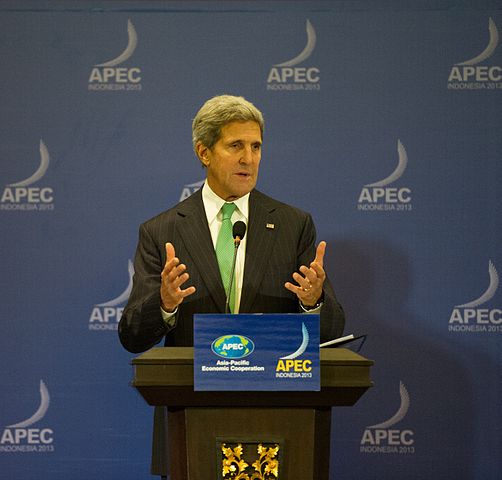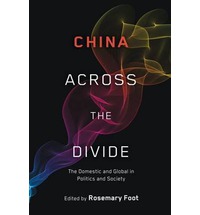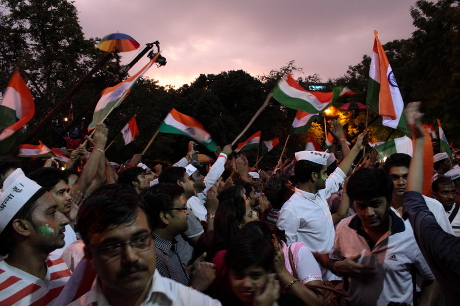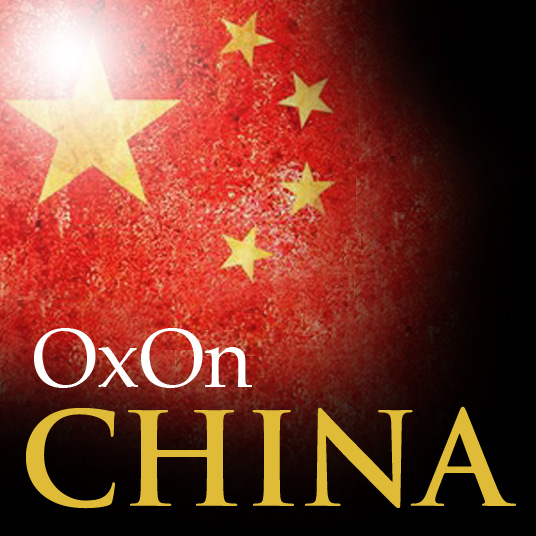
The US Rebalance Off-Balance: Missing the party in Asia
In April 2013, Joseph Yun, then the US Acting Assistant Secretary for East Asia and the Pacific, addressed a Senate Foreign Affairs Subcommittee on the US policy of “rebalance” towards Asia. He argued that this rebalancing, originally introduced by the Obama administration in 2011 as the “pivot”, reflected the “profound recognition that the future prosperity and security of our nation will be defined by events and developments in the region”. Yun went on to explain how the US commitment towards the Asia-Pacific can best be demonstrated, noting that while security and defence-related cooperation is important, US “allies and partners… also tell us that, as we deepen our military engagement, we should continue also to emphasize the diplomatic, development, economic, and people-to-people engagement in order to demonstrate our longer-term commitment to our rebalance strategy.” (Yun Testimony, Washington DC, 25 April 2013).
President Obama’s intended visit to the region in early October 2013 was supposed to be a key plank in demonstrating that commitment. Obama was to have attended the East Asia Summit in Brunei, and the Asia-Pacific Economic Conference held in host-country Indonesia – a country that because of its influence in ASEAN, the G20 and the Organization of Islamic Conference, deserves sustained attention. In Kuala Lumpur, Obama would have attended the Global Entrepreneurship Summit. More importantly still, it would have been the first time that a sitting US president has visited Malaysia since 1966. Obama was also due to be in the Philippines in order both to demonstrate that the US remains a loyal ally when there is a perceived increased threat from China, but probably also to give the message that Manila needs to stay in step with its ASEAN neighbours on the South China Sea dispute and not surprise them with diplomatic positions that leave them nonplussed and that would likely exacerbate the issue.

Q&A: China Across the Divide: the domestic and global in politics and society
I recently interviewed Professor Rosemary Foot about her new book, China Across the Divide: the domestic and global in politics and society (New York: Oxford University Press, 2013), as part of Politics and Spires’s OxOn China series.
NH: What is the book about?
RF: The book’s main argument is that, as students of international relations, we need to do more to collapse the divide between the domestic and global spheres of analysis. I make this argument with special reference to China, but I think it can be applied to other countries. I have chosen three main approaches to illustrate this phenomenon of the interconnectedness between the global and domestic levels of analysis. The first section of the book looks at ideas emerging from within China itself, at both mass and elite levels, about the country’s place in the world and how it should conduct its external relations. The argument is not that these ideas determine policy decisions, but help to shape, or set the broad contours of, the decisions that are arrived at. The second section looks at involvement in inter-societal enmeshments between China and other countries, and both the intended and unintended consequences of these linkages. This part of the book looks at the ways in which these non-state relations are transforming not only China itself but also the world of which it is a part. The third section focuses on three major global issues that are salient or intrusive at the domestic level and which require either some alterations in domestic ways of life or generate resistance at the domestic level to that intrusiveness.
NH: What inspired you to write/edit it?

A Reformed Role Model: India is becoming a reluctant promoter of rights
When it comes to human rights, India is a paradoxical case. On the one hand she is praised as a regional standard-bearer, too-often celebrated as ‘the world’s largest democracy’ and applauded for protecting rights when her neighbours do not. On the other hand, the rights community is unanimous in its condemnation of India’s human rights record. Brutal oppression in Kashmir, state mandated ‘encounters’ (unlawful killings) and the violations of tribal land rights are but three of the recurring complaints made of India’s human rights protection record.
The picture is more complicated when it comes to international relations. For many, including Salil Shetty, the Secretary General of Amnesty International, India’s rising power status brings with it a greater responsibility to promote rights internationally. Meenakshi Ganguly, South Asia Director of Human Right Watch, said something similar in in a recent high-profile piece: urging India to do more to secure rights globally.
Of course India should do as much as it can to encourage rights protection beyond its borders. But such conclusions fail to explain why India is a reluctant partner in the international effort to protect rights. Perhaps the most instructive question is ‘is it in India’s interests to promote rights globally?’.

The new political regime in China: is it business as usual?
Dramatic changes do not appear to be on the agenda in China, at least at the surface level. The new political regime, under the stewardship of Xi Jinping, inherited an economy with widening socio-economic disparities and accompanying social welfare concerns. Farmers, migrant workers and lower/middle-class urbanities grumble about rising living costs, and a perceived lower quality of life. Their concerns are further cemented by greater public awareness of corruption in both the state and non-state sectors. This may be the cause of lower levels of trust and confidence in public and private institutions by the general public.
But in spite of the discontent, changes are happening. Administrative in nature, perhaps, these changes will have strong implications for state-society relations going forward.
What can we expect?

Secrets of Yemen’s eastern deserts
I recently travelled to Yemen’s remote and dangerous Mahra region to carry out the first ever survey of the local people’s hopes, fears and political aspirations in post-revolution Yemen. Here is a description of some of my experiences.
“Yallah, pack up. We leave in ten minutes.” For security reasons, our schedule was not revealed in advance, even to me.
Our convoy had settled for a few days in al-Ghayda, the ramshackle capital of Mahra governorate in east Yemen, and word of our presence was spreading fast. Invitations from local dignitaries had increased from a trickle to a flood. Traditional hospitality was the best way for opponents with vested interests to learn what we were up to.
It was time to move on. My tribal guards and hosts were eager for me to experience the beauty and hospitality of the deserts. Few outsiders, even Yemeni, have been given the chance to venture away from Mahra’s coastal regions into the uncharted interior.
Making a stop at a final gas station before heading north off-road into the undulating sands of the Empty Quarter, we loaded our convoy with as much water and petrol as we could carry.
Dotted around the station were well-armed men in trucks. Look-outs. My guards recognized them from the compound where a powerful tribe had invited us to share trays of lamb the previous day. Outside the compound, the rules of hospitality no longer applied. Yesterday’s hosts became today’s hostiles.

Sino-Japanese War: A Q&A with Dr Rana Mitter, author of “China’s War with Japan, 1937-1945: The Struggle for Survival”
For the past few years, Professor Rana Mitter, one of the co-editors of our China blog, has been engaged in a research project aiming to better understand the process and relevance of the Sino-Japanese War between 1937 and 1945. Recently, he published his main findings in a volume that discusses the social, political and economic repercussions of the Japanese invasion and the Chinese response. We sat down with him to discuss it in more detail.
OxOn China (OC): What is the most important thing we need to know about the war with Japan?
Rana Mitter (RM): What distinguishes the Sino-Japanese war is that it really provides a breakpoint for Chinese modernity. A whole variety of longstanding traditions, patterns of landholding, and economic structures, changed forever. The fact that large swathes of Chinese territory were invaded and occupied was enormously disruptive. Local elites, for example, found themselves refugees, supplanted by an alien power. The political powerbase changed very suddenly, paving the way for the Communist revolution.

Economist Book review: China’s War with Japan, 1937–1945: The Struggle for Survival, by Oxford’s Rana Mitter
AS JAPANESE troops advanced on the Chinese capital of Nanjing in 1937, Zhou Fohai, a senior official in the Chinese government, wrote in his diary of the panic and fear consuming the city. He anticipated the destruction and its implications for his nation: “China will have no more history,” he wrote.
The devastation that the Japanese invasion would wreak was indeed shocking. But as Rana Mitter shows in his illuminating and meticulously researched new book about the Sino-Japanese war, not only did Chinese history not end with the fall of Nanjing, but in many ways the war helped to create modern China. It was the anvil on which the new nation was forged.
Other historians point to the arrival of British gunboats in the 1830s, when industrialising Europe collided with ancient China, as the dawn of China’s modern age. But Mr Mitter, a professor at Oxford University, believes that the country’s war with Japan was more important because it reduced China to its weakest state. “Suddenly the circumstances of war made the concept of the nation, and personal identification with it, more urgent and meaningful for many Chinese.”

Democracy and Foreign Policy Persistence: Why Pakistan’s India strategy under Nawaz Sharif may not see a paradigm shift
Nawaz Sharif, the leader of the Pakistan Muslim League, is back in power. Sworn in as prime minister on June 5th, for the third time since 1990, he has been recognized over the course of his political career as a principal challenger to the military’s supremacy in governing Pakistan. Indeed Mr Sharif’s proactive pursuit of peace with India became the primary reason for his forcible ouster from power by the army in October 1999 and he was subsequently imprisoned and exiled for intruding into what the army considers its exclusive foreign policy domain. But the tide of history has now turned back in his favour and he promises a ‘new chapter’ in the country’s relationship with India. ‘We will start from where we were interrupted in 1999’, he declared as soon as the PML-N won the May 11th elections.
Since his dealings with India precipitated his ouster from power 14 years ago, there is now a heated debate over the prospects of a fast-paced rapprochement with its southern neighbour. Sharif has already pledged to take some bold initiatives: improving trade, energy and transportation links; expediting the Mumbai terror investigations; establishing a commission of enquiry on the Kargil conflict (which had subverted the peace process with India, especially the February 1999 Lahore Declaration); and reigning in non-state actors such as Lashkar-e-Tayba, accused of committing terrorism against India. Indian leadership (from the majority in Congress and the BJP opposition) have wholeheartedly welcomed Mr Sharif’s return to power and his overtures towards India. For now at least, there is visible public optimism in both countries that perhaps the two traditional foes are finally well on their way towards a sustainable course of mutual peace.









